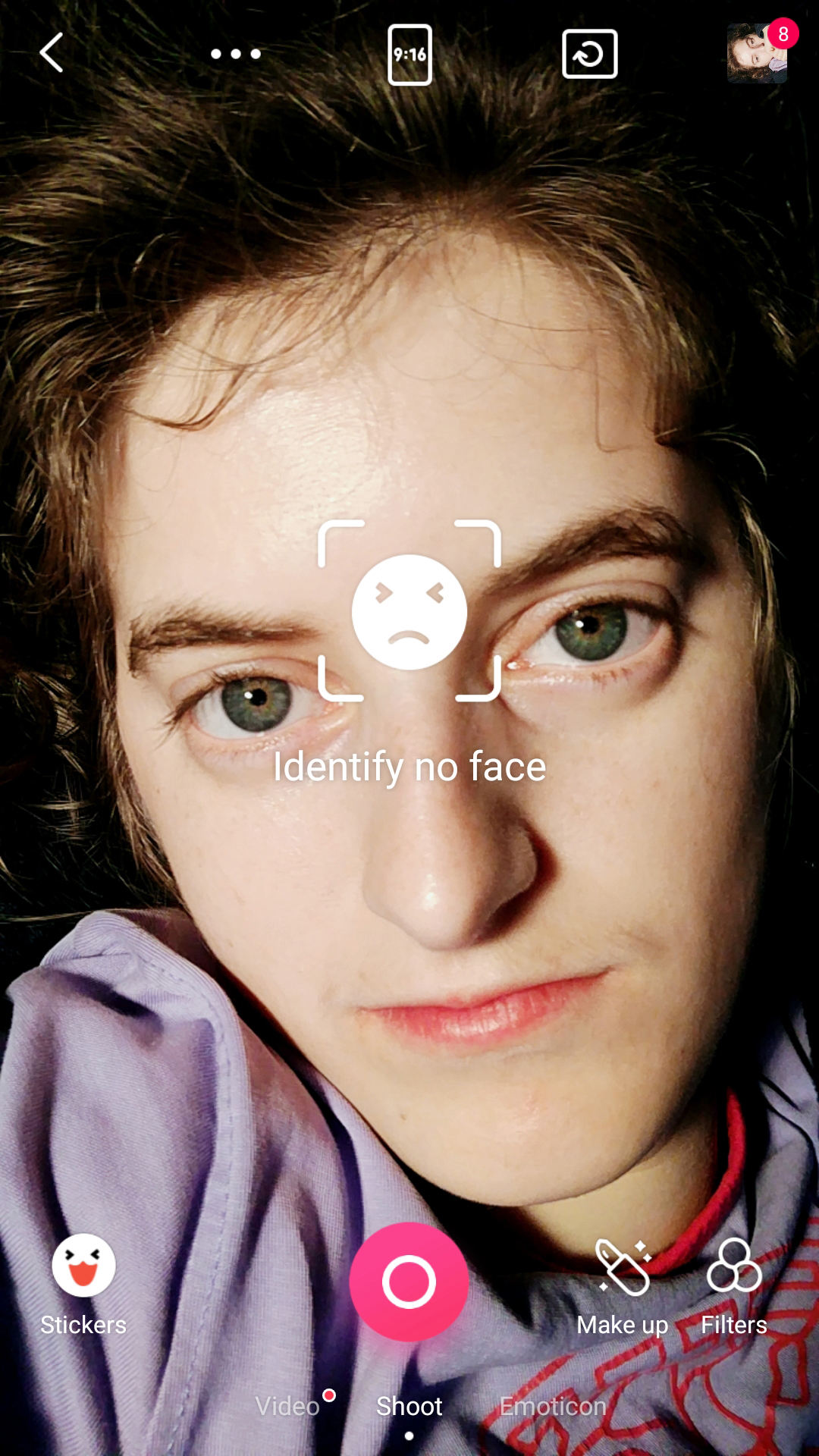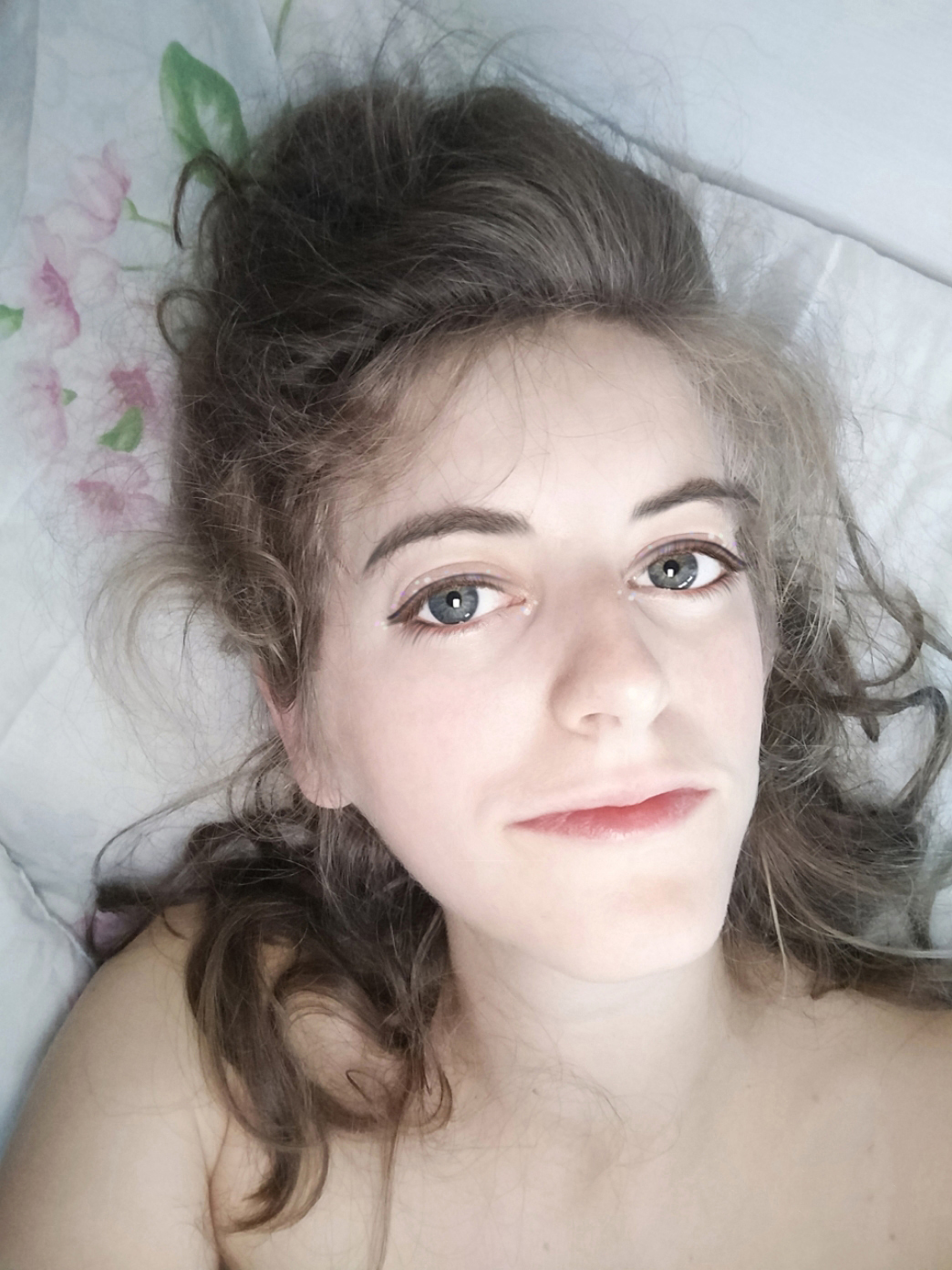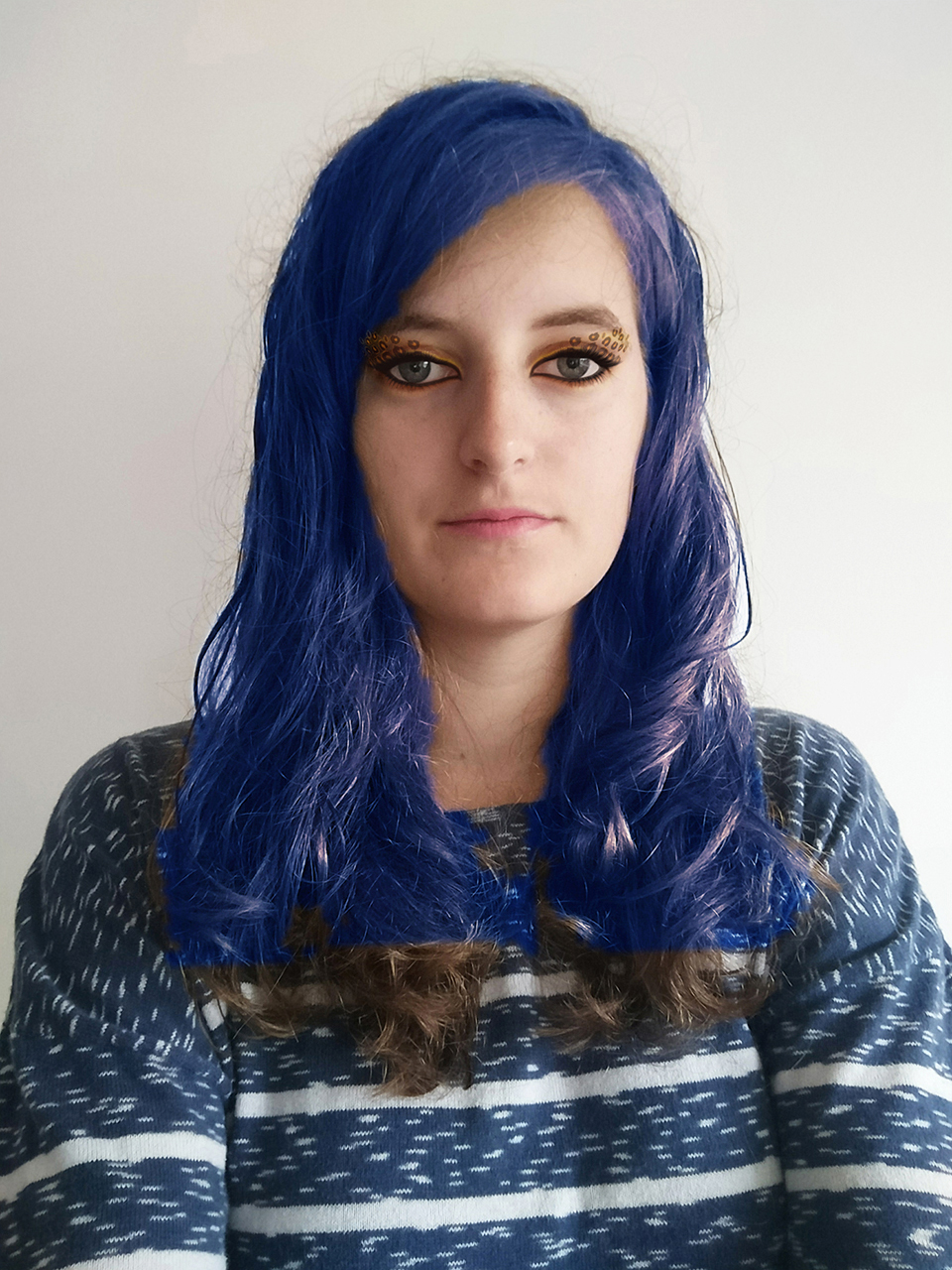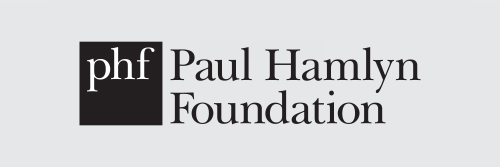


‘RECOMMEND SHOOTING WITH A POSITIVE FACE’, AN OVERVIEW OF THE WORK OF JOCELYN ALLEN BY SAM PHASEY
‘Most of my photographic work goes between hiding and revealing.’[1]
Jocelyn Allen’s autobiographical photography is honest and articulate. The photographs in each series work through processes of self-reflection and introspection; each series draws out personal conflicts and lays them bare (sometimes literally) and each series has a specific theme or concept that it invites the viewer to engage with.
Allen’s self-portraiture is almost confessional, relaying sites of anxiety and struggle, wittily, whimsically. The artist is compulsively self aware, and this self awareness renders out in her work in charming and relatable turns. Smile Love (2019), a gif in which, in response to the titular injunction, the artist’s face morphs between cartoonish depression and a rictus gurn, is particularly emblematic of Allen’s playful comedy: acutely self-reflexive, and captioned with an irreverent stream of hashtag (self)consciousness.
Allen locates herself socially in National Statistic (2011), and familially in One is Not Like The Other (2010), but her work most frequently concerns the relationship between the artist and herself: her photographs process themes relating to body image, self-esteem and anxiety, often at the same time, and with particular respect to the alienating conditions in which we construct selfhood in postmodernity.
In her 2017-19 project Nice Hair, Shame About Your Face, Allen explores her experiences of hostility and the gaze on social media, and how those experiences have shaped her self(ie)-image. In the series, she focuses on manipulating selfie portraits using the litany of ready-made beautification apps that are marketed online, primarily to women. Each photo traces her encounters with the ‘enhancement’ apps, and rather than the photos emerging as completed images, we are made privy to the procedures themselves: the ‘UX’, and the errors aroused in the software by Allen’s unsmiling face. The piece’s title refers to a memorable insult from the artist’s childhood, and in recycling the phrase, she possesses it, reshaping it into a self-deprecating witticism, just as she reframes and repurposes the complaints leveled against her by the apps: ‘Recommend shooting with a positive face’.
Allen’s work often litigates its themes through the repetition and redoubling of images, in doing so presenting us with short, discreet narratives that emerge in the differences— the lapses— between them. Those lapses can hide or reveal signs and symbols; can disclose or dissimulate interpretations, just as Allen’s photographs can either hide or reveal her selfhood, her presence.
‘The philosopher Søren Kierkegaard said that life begins and ends with the individual. During a phase where I could not think of anything other than the meaning of life, I thought that a person’s existence is generally made up of seven major stages.’[2]
In 2013, Allen self published Reality of Youth Going Backwards in Vain, a project she had worked on during her final year at the University of Wales. Reality, the photographer’s first self-portrait series, was inspired by the individualism of Kierkegaard. Across the vignettes, Allen articulates and anticipates the ‘seven major stages’ of life she has experienced or will experience. Each variegated stage is expressed in relation to a colour, hence the mnemonic title. The ‘white’ totality of her being is made prismatic: subdivided across the spectrum-sequence of images. ‘[T]o dissect how the number 7 became divine, I fear we would require an entire library.’ As the photobook’s included essay (Joanna L Cresswell) makes clear, the number seven resonates across the literary and mythic canons, and those echoes— of the seven deadly sins, of Shakespeare’s ‘seven ages of man’— reverberate also in Allen’s vignettes, further structuring our already ‘coloured’ responses.
Allen also works with video: her ongoing project Your Dedication Worries Me A Little (released under the pseudonym Helena Teasdale), in which she dances along to her favourite songs, engages with similar themes to the rest of her work: identity, perception and self image. However, this YouTube series introduces a performativity and an energy that are only fleetingly present elsewhere in her output. The video anthology is distinctly reminiscent of the forms of unabashed self-expression that were emergent during the platform’s infancy, and consequently acts as an exhaustive continuation of the medium, and an examination/ narrativisation of the way we control self-image and self-representation online.
In a 2016 interview with Photoworks for their Ideas on Talent series, Allen discusses her fear that she may be perceived as a ‘one trick pony’, owing to her focus on self-portraiture. This focus, and the clarity of her approach, however, have allowed her to elucidate powerful, personal and earnest responses to some of the defining problems of selfhood in the modern era.
Jocelyn Allen’s Series Nice Hair, Shame About Your Face is showing on Open Eye Gallery’s Digital Window Gallery as part of Open Source #10 for the entirety of August 2019. Hear Jocelyn discuss her practice and work on August 22.
RSVP: http://openeye.org.uk/whatson/open-source-in-conversation-jocelyn-allen/
[1] Jocelyn Allen Ideas on Talent Interview, Photoworks. https://photoworks.org.uk/ideas-series-interview-jocelyn-allen/
[2] Jocelyn Allen Reality of Youth Going Backwards in Time, Artist’s Website. https://jocelynallen.co.uk/realityofyouth.
Words: Sam Phasey
Images: Jocelyn Allen

